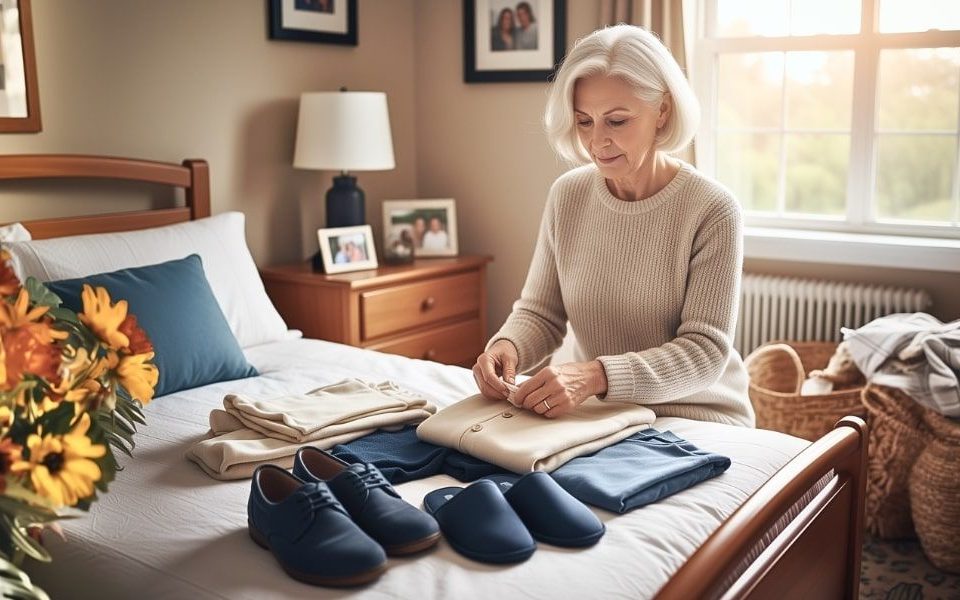
At first, it’s easy to brush off a routine checkup, especially when you feel fine. But many seniors have learned the hard way that silent conditions like cancer don’t wait for symptoms.
Preventive health screenings for seniors aren’t just another doctor’s visit. They’re your safety net, helping you catch conditions early and giving you the best chance for a good outcome. These simple tests can mean the difference between a minor fix today and a serious problem tomorrow.
This post will explore some of the most important health screenings for seniors.
Why Being Proactive Is the Smartest Health Strategy
The goal of preventive care is simple. Early detection keeps you in control of your health and your future.
- Avoid Complications: Many severe conditions start quietly. Regular screenings help you stay ahead of problems rather than reacting to them.
- Strengthen Care Team: Each test is a chance to deepen trust and communication with your doctor and loved ones. When everyone understands your needs, care becomes more personal and practical.
- Live Better and Longer: With your health actively monitored, you can approach each day with greater peace of mind. That way, you can focus on what matters most: living fully.
Your Annual Health Checklist: Essential Tests to Prioritize
These essential screenings form the foundation of a solid preventive care routine. You can do most during your annual checkup, making it easy to stay proactive about your health.
| Screening | Why It Matters for Senior Health |
| Blood Pressure & Cholesterol | Key to protecting your heart. Regular checks monitor circulation and help lower the risk of heart disease and stroke. |
| Blood Glucose Test | Identifies pre-diabetes or diabetes early. Balanced blood sugar supports steady energy, clear vision, and nerve health. |
| Vision & Hearing Exams | Vital for safety and connection. Sharp sight and sound help prevent falls and reduce the risk of isolation. |
| Dental Exams & Cleanings | Strong oral health prevents infection and supports good nutrition. Healthy gums actively reduce inflammation throughout the body. |
| Weight & Body Mass Index (BMI) | Simple but powerful indicators of mobility, bone strength, and muscle balance. Small changes here can guide better diet and activity choices. |
Key Screenings to Discuss with Your Doctor
Every senior’s health story is different. Talking openly with your doctor helps tailor your screening plan to your age, gender, and family history.
Cancer Screenings
- Colorectal Cancer Screening: Recommended until around age 75. Options include colonoscopies or simple stool-based tests that detect polyps or early cancer.
- Mammograms (For Women): Doctors determine frequency and timing based on medical records and family history.
- Prostate Screenings (For Men): The right timing and frequency depend on your personal and family health history.
Mobility & Bone Health
- Bone Density Test (DEXA Scan): Detects early bone loss, including osteopenia and osteoporosis. Regular scans help prevent fractures and support long-term strength and balance.
- Skin Checks: A quick visit to a dermatologist can catch skin cancer early. Treatment is most effective and recovery is simpler in the early stages.
Immunizations: A Key Part of Preventive Care
Vaccines are among the simplest and most effective ways to stay healthy. Keeping up with recommended shots strengthens your immune system to fight infections.
- Annual Flu Shot: Protects against seasonal flu and reduces the risk of serious complications.
- Pneumonia Vaccine: Strongly recommended for older adults to prevent severe respiratory infections.
- Shingles Vaccine: Shields you from a painful, lingering rash that can affect your quality of life.
- Tdap Booster: Provides continued protection against tetanus, diphtheria, and whooping cough.
Many pharmacies and clinics now offer walk-in vaccine appointments to make preventive care more accessible.
Questions About Preventive Health Screenings for Seniors
How often should seniors get preventive health screenings?
Most screenings occur once a year, though some may be more frequent based on your doctor’s advice.
Are preventive screenings covered by insurance or Medicare?
Medicare Part B and most supplemental health plans fully or partially cover many screenings.
Do seniors still need screenings if they feel healthy?
Yes. Screenings detect changes before symptoms appear, allowing for early and effective treatment.
How can I prepare for a screening appointment?
Bring a list of your medications, past test results, and any new symptoms.
Where can seniors get screenings?
Most primary care offices, local clinics, and community health centers offer these services.
Wellness That Starts With Care
Preventive care is simpler when it’s part of everyday life. At Enrich Senior Living, we understand the need for preventive health care. Our team partners with trusted medical providers to ensure residents get the care they need.
Schedule a tour today and discover a community built on health, connection, and purpose.



